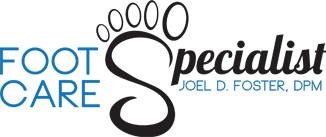Ill-Fitting Shoes
We know you want to be fashionable, but please don’t sacrifice your feet in the name of style. Poorly fitting shoes can create friction and pressure points that lead to the formation of corns and calluses.
- Wearing shoes that are too tight squeezes your toes together and puts excessive friction and pressure on certain areas of the feet.
- Shoes that are too loose allow your feet to slide around, creating friction.
- Shoes that lack proper arch support or cushioning fail to distribute your weight evenly, concentrating pressure on certain areas.
Foot Deformities
Structural deformities of the foot can alter how weight and pressure is distributed when walking or standing. This can increase your risk of developing corns and calluses. For example:
- Bunions, where the big toe joint protrudes outward, put excessive pressure on the edge of the foot.
- Hammer toes, where the toe is bent at an unnatural angle, cause friction and pressure on the top of the bent toe.
- Flat foot or high arches change the overall mechanics of how weight is distributed, increasing friction and pressure on the soles of the feet.
High-Impact Activities
Any repetitive activity that pounds the feet into the ground creates friction and pressure that can lead to callus formation. For example:
- Running subjects the heel and ball of the foot to intense, repeated impact forces.
- Sports like basketball, tennis, or dancing that involve lots of pivoting, jumping, and sudden starts/stops concentrate friction and pressure on specific areas of the feet.
- High-impact workouts like plyometrics, box jumps, or stair climbing can cause calluses to form on the balls of the feet due to the repetitive pounding and shearing forces.
Improper Foot Care
Sometimes, we see people in our office with corns and calluses that are simply the resolute of foot care practices. Here are some preventative tips we recommend:
- Trimming your toenails straight across and leaving them a little longer helps prevent ingrowing nails that could lead to corns.
- Using a moisturizer helps keep your skin supple and prevents excessive dryness and cracking that can evolve into calluses.
- Wearing moisture-wicking socks and changing them frequently prevents bacterial buildup that could infect any thickened skin.
When to Schedule an Appointment With Lee’s Summit Podiatrist Dr. Joel Foster
While some corns and calluses can be managed at home, there are situations where seeking professional care is crucial. Here’s when we recommend making an appointment to see Dr. Foster:
- You’re in severe pain. If your corns or calluses are causing significant pain or interfering with your ability to walk or perform daily activities, it's time to seek professional help.
- You’ve got recurring or persistent corns and calluses. If your corns or calluses keep coming back despite at-home treatments, we can provide advanced treatment options.
- You have diabetes or poor circulation. Individuals with diabetes or poor circulation should never attempt to remove corns or calluses on their own, as this can lead to infections or other complications.
- You think you might have an underlying condition. If you suspect that your corns or calluses are related to foot deformities or other underlying conditions, we can provide an accurate diagnosis and appropriate treatment.
Don’t let cost concerns keep you from seeking the care you need. As a direct-pay practice, we strive to make podiatry care more affordable and convenient by eliminating the administrative overhead that comes with processing insurance claims and putting decision-making power back in the patient’s hands. Our prices are posted online, we welcome patients with no insurance or high-deductible plans, and we’re happy to discuss payment options on a case-by-case basis.


